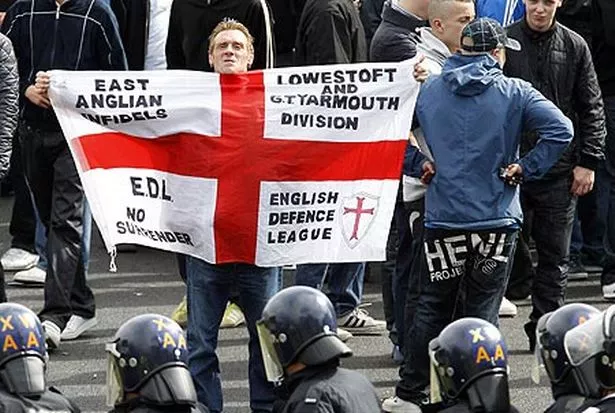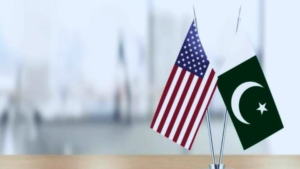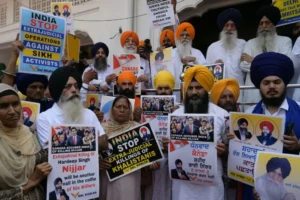A Global Surge of Rightward Politics
The ideological landscape of the world is changing. In recent decades, there has been a considerable increase in right-wing politics worldwide. This phenomenon is not homogenous; it encompasses a wide spectrum of beliefs that, in general, emphasize nationalism, social order, tradition, and a strong central state. Right-wing movements frequently conflict with left-wing ideas that emphasize social welfare, equality, and international collaboration. While conservatism has historically played a role in political systems, the contemporary form of right-wing politics is distinct. It frequently takes a populist stance, appealing directly to the public’s fears and frustrations. Right-wing populists frequently portray themselves as outsiders fighting against a corrupt elite, focusing their rage on establishment institutions and globalization.
This trend is seen in the growth of charismatic leaders and political parties who advocate for strong nationalist rhetoric and policies prioritizing national interests over international collaboration. Between 1990 and 2018, the number of populists in power around the world has increased fivefold, from four to 20. This includes countries not only in Latin America and in Eastern and Central Europe—where populism has traditionally been most prevalent—but also in Asia and Western Europe.
Factors Behind the Rise of Right-Wing Politics
The emergence of right-wing populism is not an unintentional explosion. The fact is that populism is not an ideology. Instead, it’s a strategy to obtain and retain power. It is a fire started by a complex combination of economic concerns, social and cultural transformations, and growing dissatisfaction with old institutions. Globalization, while promoting economic growth in some sectors, has resulted in job losses in developed countries’ manufacturing and industrial sectors. This economic worry provides fertile ground for right-wing movements that blame immigration or free trade agreements for low wages and job prospects.
Rapid societal changes, such as increased immigration, LGBTQ+ rights movements, and growing atheism, cause concern among portions of the community who believe their traditional values are under attack. Right-wing movements seize on this worry, portraying themselves as guardians of these values and a bygone period. In many nations, public faith in established institutions such as the media and government has progressively declined. According to the 2022 Edelman Trust Barometer study, most developed countries’ trust in government has reached an all-time low. Right-wing populists capitalize on this discontent with the “establishment,” casting themselves as outsiders who will upend the system. These variables, which are frequently linked, form a potent cocktail that fuels the emergence of right-wing populism.
The Global Ascendancy of Right-Wing Politics
The rise of right-wing populism isn’t limited to a single geographic region. From Europe to the Americas and even in parts of Asia, right-wing movements are gaining ground and wielding increasing influence.
Europe: A Continent Divided – In Europe, right-wing populism frequently manifests as Euroscepticism, a critical attitude toward the European Union (EU) and its alleged overreach. Parties such as Hungary’s Fidesz under Viktor Orbán and Poland’s Law and Justice (PiS) have opposed EU legislation and democratic standards, prompting fears about a retreat from democratic principles. The surge of migrants and refugees fleeing war in the Middle East and Africa has fostered the rise of anti-immigrant sentiment throughout Europe. Right-wing parties such as France’s National Rally (previously the National Front) and Germany’s Alternative for Germany (AfD) have capitalized on these concerns, advocating for tighter border controls and immigration restrictions.
Also Read: The West’s Hypocrisy on Human Rights
The “America First” Agenda – Donald Trump’s election in the United States in 2016 represented a fundamental shift in American politics. His nationalist rhetoric, protectionist trade policies, and emphasis on “America First” appealed to a sector of the populace that felt left behind by globalization.
Similarly, Jair Bolsonaro’s success in Brazil’s 2018 presidential election showed a desire for change amid economic stagnation and high crime rates. Many Brazilians admired his social conservatism, stern stance on crime, and pro-business policies, but many were also concerned about his treatment of the Amazon rainforest and democratic institutions.
Case Study: India under Modi and the BJP
Syama Prasad Mookerjee created the Bharatiya Jana Sangh in 1951, from which the Bharatiya Janata Party (BJP) grew. The party’s ideology is based on Hindutva, a form of cultural nationalism that emphasizes the importance of Hindu culture and values in Indian society. Over the decades, the BJP has grown into a formidable political force, fighting for economic reform and a firm position on national security.
Modi’s leadership during his tenure as Gujarat Chief Minister, particularly in the aftermath of the 2002 Gujarat riots, drew both praise and criticism, influencing his political career.
Narendra Modi, India’s current Prime Minister, came from humble origins as a tea seller in Gujarat. He ascended through the ranks of the Rashtriya Swayamsevak Sangh (RSS), a Hindu nationalist group linked to the BJP. Modi’s leadership during his tenure as Gujarat Chief Minister, particularly in the aftermath of the 2002 Gujarat riots, drew both praise and criticism, influencing his political career.
Modi’s tenure as Prime Minister has seen an increase in Hindu nationalist rhetoric and initiatives. The BJP’s political campaigns have frequently used religious symbols and appeals to Hindu pride to draw into feelings of cultural assertiveness. Critics argue that policies like the contentious Citizenship Amendment Act (CAA) and the repeal of Article 370 in Indian-Occupied Jammu and Kashmir further a Hindu majoritarian goal.
The increased emphasis on Hindu nationalism has sparked worries about the treatment of minorities, particularly Muslims. According to the National Crime Records Bureau of India (NCRB), crimes against religious communities increased by 28% between 2014 (before the BJP came to power) and 2020. Critics believe that such policies have exacerbated religious divisiveness and marginalization, with reports of community violence and discrimination throughout the country.
The BJP government has sought economic reforms to promote growth and development. Initiatives like the Goods and Services Tax (GST) and attempts to improve the ease of doing business have been praised for their ability to simplify the economy. However, the adoption of demonetization in 2016, which was intended to combat corruption and counterfeit cash, drew criticism for its disruptive effects on the informal sector and small companies. Social conflicts have continued alongside economic improvements, including cases of religiously driven violence and vigilantism. Incidents such as mob lynchings, which frequently target minorities, have highlighted the difficulties of preserving social cohesiveness in a multicultural society.
The Future of Indian Democracy
Concerns have been voiced about democratic backsliding and the degradation of journalistic freedom under the BJP administration. In 2021, Freedom House demoted India’s position on its annual “Freedom in the World” report, moving it from the rank of “Free” to “Partly Free.” Censorship and harassment of journalists critical of the government have been recorded, raising concerns about the situation of free expression and media independence in India. Despite these problems, opposition to the BJP remains strong, with regional parties and civil society organizations campaigning for alternate forms of governance.
The strength of India’s democratic institutions, notably the judiciary and electoral system, provides optimism for the survival of democratic values in the face of political division and authoritarian tendencies. The trajectory of India under Modi and the BJP is a complicated interaction of ideological transformations, economic reforms, and social tensions. While the government has pushed populist and nationalist policies, there are ongoing worries about the impact on minority rights and democratic standards. The ability to solve these difficulties while respecting the norms of pluralism and inclusive governance is critical to India’s democratic future.
A World at a Crossroads
The emergence of right-wing populism around the world poses a danger to the international order and democratic norms. Populist politicians sometimes prioritize national interests over international cooperation, which may impede efforts to address global concerns such as climate change and pandemics. Furthermore, the deterioration of democratic standards and the targeting of minority groups can result in domestic instability and increasing international tensions.
Can democracies adjust to their citizens’ worries while maintaining core principles of inclusiveness and equality?
As we look ahead, a crucial question remains: Can democracies adjust to their citizens’ worries while maintaining core principles of inclusiveness and equality? The solution to this question is likely to determine the trajectory of international relations and the global balance of power in the coming years.
The opinions shared in this article reflect the author’s personal views and do not necessarily align with the institution’s official stance.




